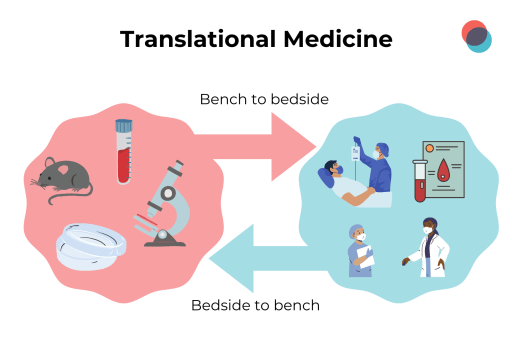Translational Medicine
August 25th, 2022, by Labtoo's team
What is translational medicine?
To put it simply, translational medicine’s goal is to accelerate new therapeutics studies to deliver treatments to patients in the fastest manner. This approach is referred to as “bench to bedside”. Another approach is associated with translational medicine: “bedside to bench”. This second approach allows medical professionals to notice changes and signs in the patient’s health in order to assist them more quickly. To do so, doctors use biomarkers, genetic or protein-based, to reveal any physical changes of the patient.
Using translational medicine is challenging, as conveying data that quickly can have economic and ethical impacts. It is no secret that developing a new drug is extremely expensive and by using quicker communication of results, the process can take less time, therefore cutting costs of R&D. For example, in the case of breast cancer, biomarkers are used to detect overexpression of the HER2 protein found on the plasma membrane of the breast cancer tumor cells. If an overexpression is found, doctors can then adjust the patient’s treatment effectively.
On the ethics side, the challenge is to respect consent, privacy, and decency. That is why translational medicine needs to be bound by regulations to limit any trouble.
How is it different from traditional medicine?
Traditional medicine has been around for centuries and developing drugs take a long time and costs a lot. A collaboration between multiple medical fields is observed, both in traditional and translational medicines, but with the latter, this collaboration is smoother and quicker. There is a more direct relationship between doctors and patients. It also allows innovative methods, like detecting forewarning health signs, to be developed.
Nowadays, both medicines are used and show encouraging results to fight diseases and find new effective treatments. Dedicated teams in large pharmaceutical groups like Novartis or Roche have been created to bridge the gap as soon as possible.
